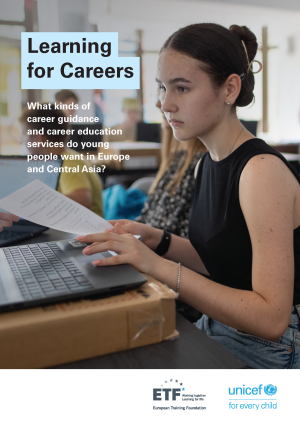Learning for careers
Today’s labour markets are turbulent and undergoing historic disruptions. In the face of accelerated automation, green and digital transformations, globalisation, fluctuating demographics, and recovering post-COVID-19 economies, the character of work is changing. For many this change brings about increased risks of joblessness, uncertainty, and precarious employment, young people being particularly affected by the current instability. Transitioning from school to work is therefore an ever more critical juncture that has consequences for the future employment, well-being, and social connectedness of the younger generation. However, rapid changes in the demand side of the labour market make decision making about education, training, and work all the more difficult.
Against this backdrop, career guidance provides an opportunity for individuals, economies, and societies to build their resilience and better adapt to these challenging times. It plays an essential part in helping economies to recover and supporting people of all ages to navigate disruptions. For young people in particular, career guidance helps to build their capacity to make important choices about their education and career paths throughout their lives so that they may be able to visualise and plan their futures.
The United Nations Children’s Fund (UNICEF) and the European Training Foundation (ETF) joined forces to explore young people’s needs, sentiments, and experiences with career guidance and counseling. The purpose of this research is not only to give voice to young people but also to gain a better understanding of one of the populations that career guidance services are aimed to serve. By engaging directly with young people and understanding their needs, aspirations, and realities, policymakers and technical experts can design better, more responsive, and more efficient policies. When designed effectively and supported with sustainable funding, career guidance systems can help individuals reach their potential, economies become more efficient, and societies become fairer and more equitable.
This report covers 11 countries in the European and Central Asian region, consulting with over 9,600 adolescents and young people. Its findings are essential given the socio-economic and demographic changes, outmigration, persistent inequality, and insecurity that are the reality in many of these countries. This report additionally has a specific focus on Ukraine and the unique challenges facing young Ukrainians’ learning and career choices since the start of the war in 2022.
Did you like this publication? If you would like to be notified when new content like this is published, subscribe to receive our email alerts.
